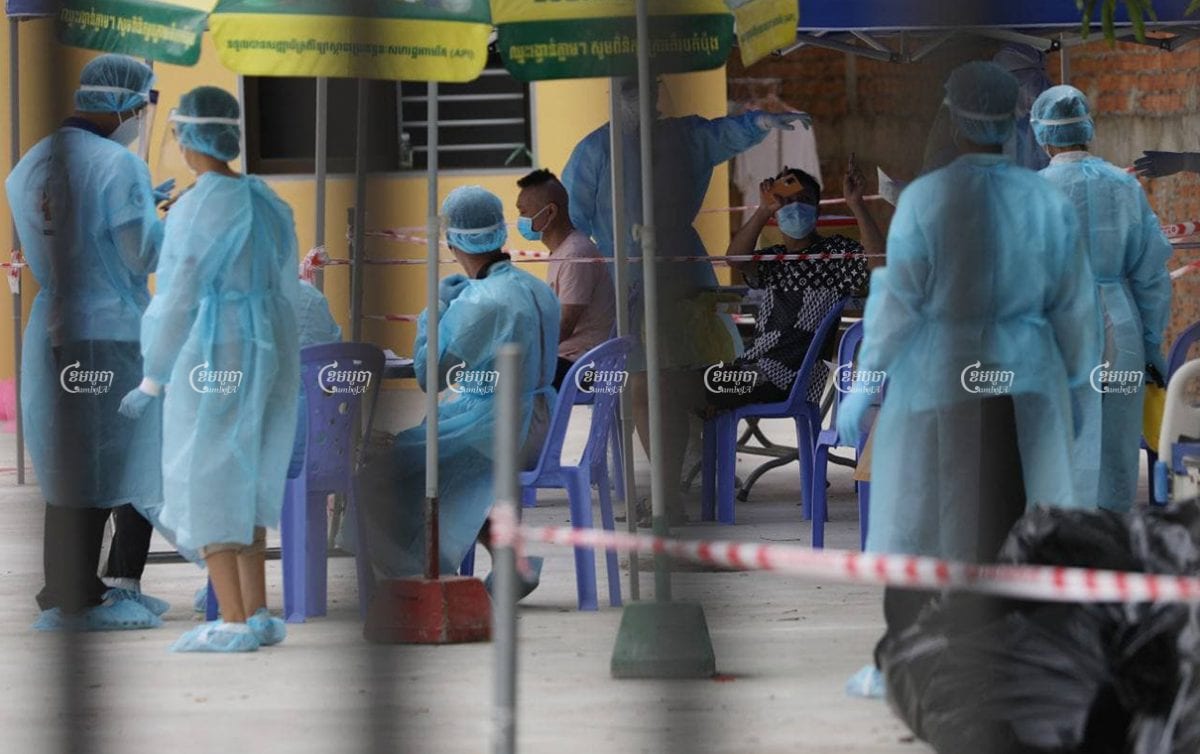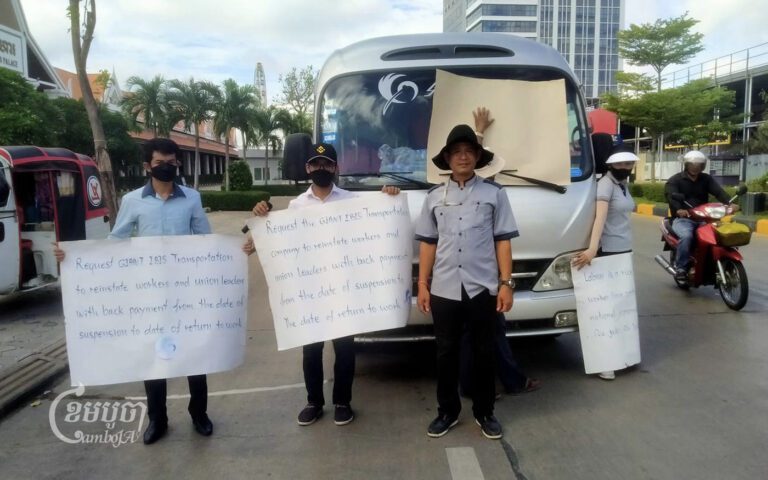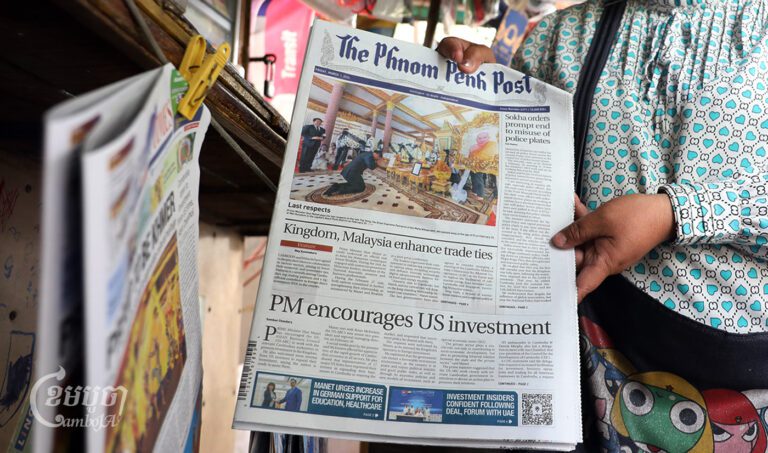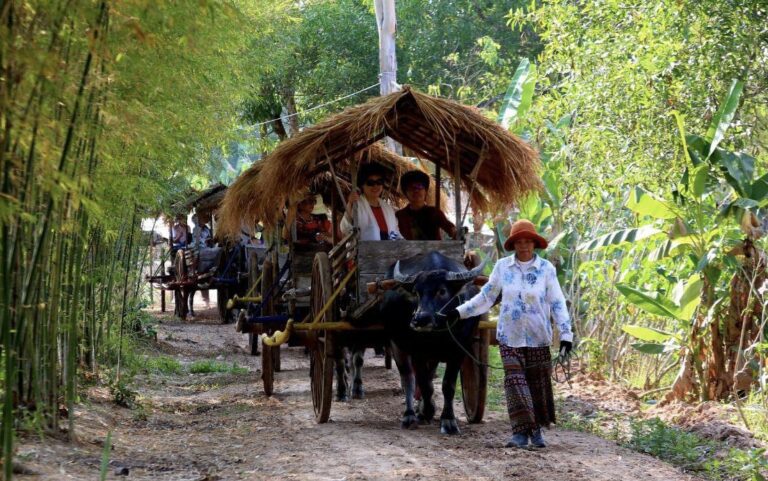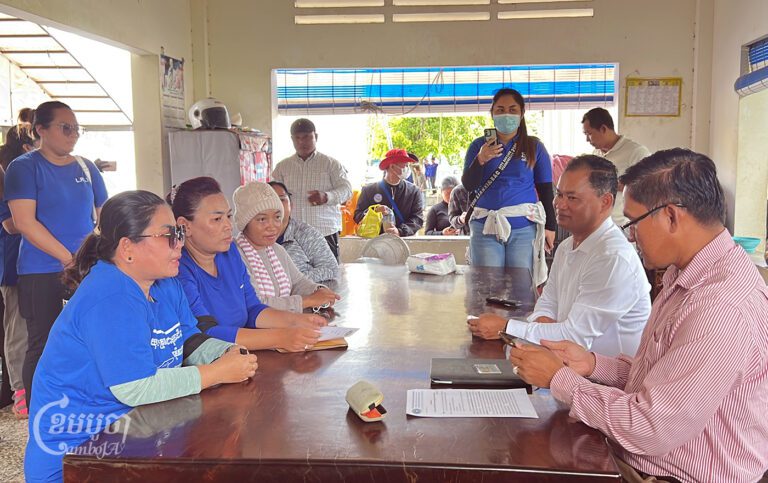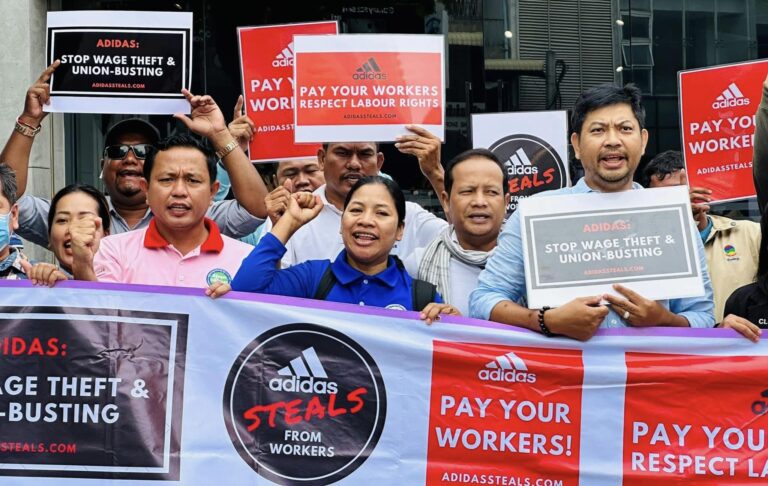Local and international civil society groups have criticized a newly passed Covid-19 prevention law as being overly broad and vague, saying the law could be easily abused and fails to provide any independent oversight or safeguards.
The controversial draft was signed into law Thursday, the same day that Cambodia reported its first ever Covid-19 death. The country has recorded 1225 cases of coronavirus since the start of the outbreak in January 2020.
Both the one-party National Assembly and the Senate, in which every seat is held by the ruling Cambodian People’s Party, unanimously passed the Law on Measures to Prevent the Spread of Covid-19 and other Serious, Dangerous and Contagious Diseases.
The law sets out penalties that can be imposed on people found to have violated any health, administrative, or other measures put in place by the government to prevent the spread of Covid-19 or other diseases.
Senate spokesman Mom Bun Neang said on Thursday that the law is needed to protect the public welfare of Cambodians, especially amid the pandemic.
“If we do not have the law, we can’t punish those who have smuggled or evaded [quarantine]” he said.
The law allows the government to: “lock down a small part such as one house or one business operation” Mr. Bun Neang explained.
He said that implementation of the law will begin one week from when it signed into being.
In Article 4 and 5, the law gives the government permission to temporarily restrict travel and gatherings; order business closures for places where Covid-19 has been found to spread; and sets out punishments, including the suspension or removal of business licenses, fines, and imprisonment.
Articles 7 to 9 make evading self-quarantine a crime punishable by 6 months up to 3 years in prison, with fines of 2 to 10 million riels; evading medical treatment facilities while positive for the coronavirus a crime punishable by 5 to 10 years; intentional spreading of Covid-19 punishable by up to 10 years, or 20 years if the offense is committed by an organized group; noncompliance with Covid-19 administrative measures punishable by up to 5 years when it results in a serious public health threat; and obstruction of Covid-19 measures punishable by up to 5 years in prison.
The government asked the National Assembly to treat the bill as “urgent,” minimizing expert review and public input.
Phil Robertson, deputy Asia director at Human Rights Watch, said by email on Friday that the new Covid-19 law is excessive and unnecessary, and could be easily misused by the government to violate human rights.
“Quite clearly, the government is trying to intimidate people and create fear for anyone to say anything about the government’s Covid-19 response”, he said.
“There is no need to criminalize people or put them in prison for such offenses. It is easy to see how the government could claim an opposition political protest they don’t like could be classified as a group deliberately spreading Covid-19, opening up the participants to possible prison terms of as much as 20 years”, he said.
He noted that “the state of emergency law is already in place and there is no need for another rights abusing law to be adopted.”
Am Sam Ath, deputy director at rights group Licadho, expressed concern over the extremely severe penalties, pointing out that the law has not yet been widely disseminated to the public.
“People will face punishment, including being fined seriously, due only to the fact that they haven’t yet understood the law,” he said.
Mr. Sam Ath said that the law doesn’t clearly state that officials who have wrongfully implemented the law should be penalized too.
“We are also concerned because some officials who have improperly carried out the law will affect people’s rights,” he said.
Justice Ministry spokesman Chin Malin dismissed the criticism by civil society groups.
“For emergency situations right now, this law is necessary in order to protect people’s lives welfare, including to maintain public order,” he said.
Current laws, however, have given police the power to go after quarantine evaders.
Chhay Kim Khoeun, National Police spokesman, said that police have arrested more than 120 people who have smuggled laborers to avoid quarantine centers along the Cambodia-Thailand border.
He said that they have intercepted about 2000 returning migrant workers in total who have evaded the 14-day quarantine centers along the border since February, and added that number is still growing as more workers return home from Thailand.
“We have controlled [the situation] and put them into quarantine,” he said.
In late February, two security guards at the Sokha Hotel in Phnom Penh were arrested after they allegedly colluded to released four Chinese visitors at the center of a Covid-19 outbreak that has spread to at least nine provinces and infected more than 700 people.
One has been charged thus far, for violating article 42 of the Law on Disaster Management. If found guilty of the deliberate violation of regulations of decisions made by an on-site administration, the guard could face a prison sentence of one month to a year and a fine of up to $250.
After a spike in cases in Preah Sihanouk, the government on March 4 restricted travel to and from the province with only cargo vehicles permitted to come and go.
A taxi driver Phnom Penh to Sihanoukville, Rath Tina, 34, expressed concern about the impact on his livelihood.
“It has a lot of impact on our incomes,” he said. In adding that previously he can earn 100,000 to 200,000 riels a day but now that has dropped to almost nothing.
Mr. Tina said that he heard that the new law would entail serious punishment and steep fines for those who broke it, and urged that the government consider educating people on the law first rather than immediately implementing it.
“We taxi drivers do not have enough money to afford those fines,” Mr. Tina said, adding that he follows any government rules to prevent the spread of the virus.
Kheang Phearom, Preah Sihanouk province spokesman, said that there are four cases related to quarantine center evasion, and that the local spread of Covid-19 has been successfully controlled.


